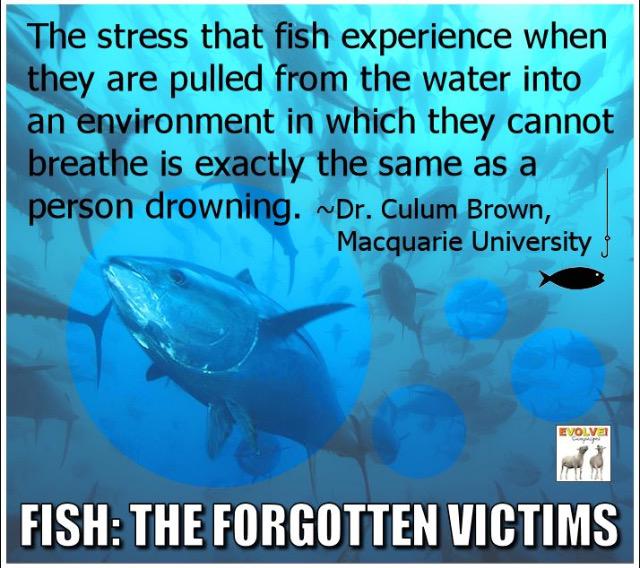What effect is animal agriculture having on the ocean
(The following facts and resources are taken directly from the Cowspiracy.com/facts page. All credit goes to Filmmakers Kip Andersen and Keegan Kuhn).
3/4 of the world’s fisheries are exploited or depleted
“Overfishing: A Threat to Marine Biodiversity.” UN News Center.
“General Situation of World Fish Stocks.” United Nations Food and Agriculture Organization (FAO).
We could see fishless oceans by 2048
Science, “Impacts of Biodiversity Loss on Ocean Ecosystem Services”.
National Geographic, article Nov. 2006
90-100 million tons of fish are pulled from our oceans each year, equating to 2.7 trillion animals lives
“World Review of Fisheries and Aquaculture.” UNITED NATIONS FOOD AND AGRICULTURE ORGANIZATION (FAO). 2012. (pg 6, 20)
Montaigne, fen. “Still waters: The global fish crisis.” National Geographic.
For every 1 pound of fish caught, up to 5 pounds of unintended marine species are caught and discarded as by-kill
As many as 40% (63 billion pounds) of fish caught globally every year are discarded
Wasted Catch: Unsolved Problems in U.S. Fisheries
Goldenberg, Suzanne. “America’s Nine Most Wasteful Fisheries Named.” The Guardian.
Scientists estimate as many as 650,000 whales, dolphins and seals are killed every year by fishing vessels
Wasted Catch: Unsolved Problems in U.S. Fisheries
Goldenberg, Suzanne. “America’s Nine Most Wasteful Fisheries Named.” The Guardian.
Fish catch peaks at 85 million tons. 40-50 million sharks killed in fishing lines and nets.
Shark Savers, “Shark Fin Trade Myths and Truths: BYCATCH”. Bonfil, R. 2000. The problem of incidental catches of sharks and rays, its likely consequences and some possible solutions. Sharks 2000 Conference, Hawaii, 21-24 February
Animal Welfare Institute
Livestock operations on land have created more than 500 nitrogen flooded deadzones around the world in our oceans
PRESS RELEASE, LOUISIANA UNIVERSITIES MARINE CONSORTIUM August 4, 2014
NOAA News, 2014.
